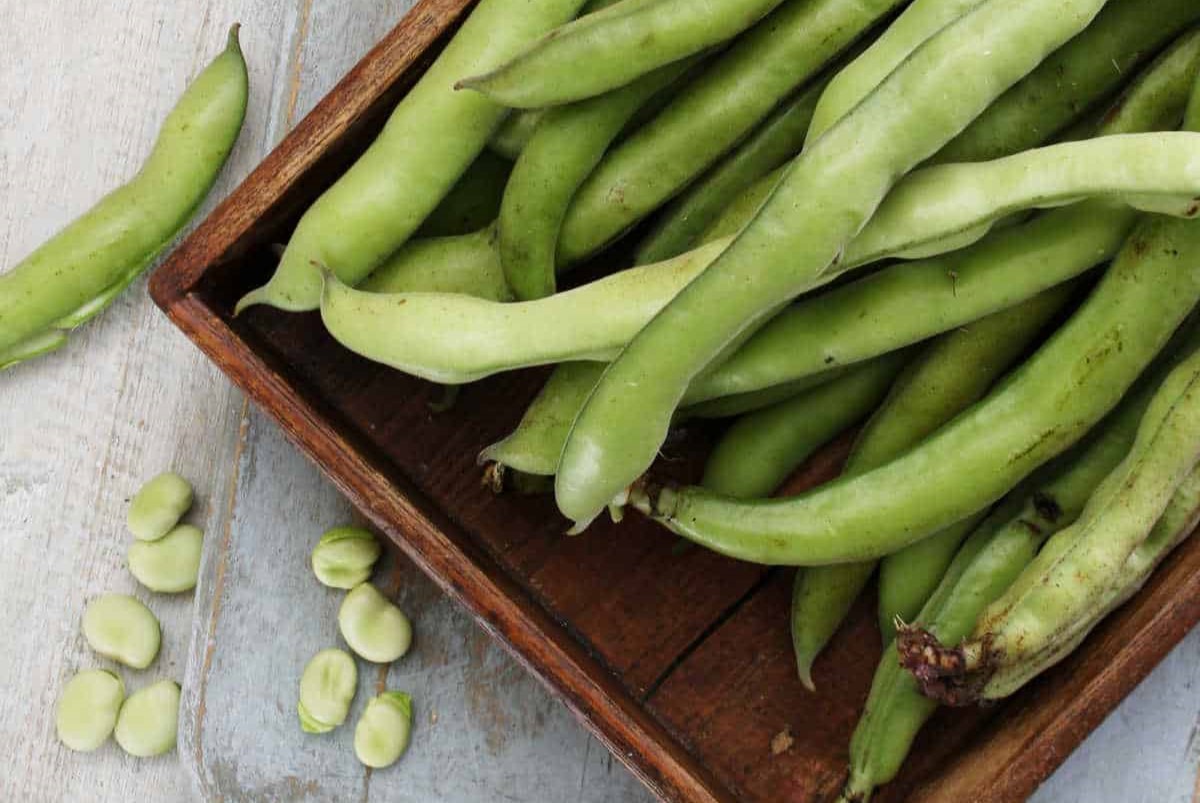
Broad beans, also known as fava beans, are more than just a tasty addition to your meals. These legumes pack a punch with their nutritional benefits and fascinating history. Did you know that broad beans have been cultivated for over 6,000 years? They were a staple in ancient civilizations like Egypt and Rome. Rich in protein, fiber, and vitamins, broad beans can boost your health in numerous ways. They can help improve heart health, support weight management, and even enhance brain function. Plus, they’re incredibly versatile in the kitchen. Whether you’re making a hearty stew, a fresh salad, or a creamy dip, broad beans can elevate your dish. Ready to learn more? Let’s dive into 25 intriguing facts about broad beans that will make you appreciate this humble legume even more.
Key Takeaways:
- Broad beans, also known as fava beans, are ancient legumes packed with protein, fiber, and essential vitamins. They're versatile in cooking and can be grown easily at home, making them a nutritious and fun addition to any diet.
- From their historical significance in ancient Greece to their use in traditional remedies, broad beans have a fascinating and quirky past. Considered lucky in some cultures, these beans have a rich history and offer a range of culinary possibilities.
What Are Broad Beans?
Broad beans, also known as fava beans, are a type of legume enjoyed worldwide. They have a rich history and are packed with nutrients. Let's dive into some fascinating facts about these versatile beans.
-
Broad beans are one of the oldest cultivated plants, dating back to 6000 BCE.
-
They are native to the Mediterranean region but are now grown globally.
-
These beans are known for their high protein content, making them a staple in vegetarian diets.
-
Broad beans are rich in fiber, which aids digestion and promotes gut health.
-
They contain essential vitamins like vitamin K, vitamin B6, and folate.
Nutritional Benefits of Broad Beans
Broad beans are not just tasty; they are also incredibly nutritious. Here are some key benefits that make them a great addition to any diet.
-
They are an excellent source of iron, which is crucial for producing red blood cells.
-
Broad beans contain magnesium, which helps maintain normal muscle and nerve function.
-
They are low in fat but high in complex carbohydrates, providing sustained energy.
-
These beans are packed with antioxidants, which help fight free radicals in the body.
-
Broad beans have a good amount of potassium, which helps regulate blood pressure.
Culinary Uses of Broad Beans
Broad beans can be used in various dishes, from soups to salads. Their versatility makes them a favorite in many cuisines.
-
In Italy, broad beans are often paired with pecorino cheese for a simple yet delicious snack.
-
They are a key ingredient in the Middle Eastern dish, falafel.
-
Broad beans can be mashed into a spread similar to hummus.
-
In China, they are often stir-fried with garlic and soy sauce.
-
Broad beans can be roasted and seasoned for a crunchy snack.
Growing Broad Beans
Interested in growing your own broad beans? Here are some interesting facts about cultivating these plants.
-
Broad beans are hardy and can tolerate cold temperatures, making them suitable for early spring planting.
-
They prefer well-drained soil and full sunlight for optimal growth.
-
These plants can grow up to 4 feet tall and may need staking for support.
-
Broad beans have a symbiotic relationship with nitrogen-fixing bacteria, enriching the soil they grow in.
-
Harvesting usually occurs when the pods are full and firm, but the beans inside are still tender.
Fun Facts About Broad Beans
Broad beans have some quirky and lesser-known facts that make them even more interesting.
-
In ancient Greece, broad beans were used in voting; a white bean signified a positive vote, while a black bean meant a negative one.
-
Broad beans are considered lucky in some cultures and are often given as gifts during celebrations.
-
They have been found in Egyptian tombs, indicating their importance in ancient diets.
-
In some parts of the world, broad beans are believed to have medicinal properties and are used in traditional remedies.
-
Broad beans are sometimes called "horse beans" because they were once used as animal fodder.
Broad Beans: A Nutritious Powerhouse
Broad beans, also known as fava beans, pack a punch when it comes to nutrition and versatility. They’re rich in protein, fiber, vitamins, and minerals, making them a great addition to any diet. These beans can help improve heart health, boost immunity, and aid digestion. Plus, they’re super versatile in the kitchen. You can toss them in salads, blend them into dips, or cook them into hearty stews.
Growing broad beans is also pretty straightforward. They thrive in cool weather and can be grown in gardens or containers. Whether you’re a seasoned gardener or a newbie, these beans are a rewarding crop to cultivate.
So, next time you’re at the grocery store or planning your garden, consider adding broad beans to your list. They’re not just tasty; they’re a powerhouse of nutrition and easy to grow.
Frequently Asked Questions
Was this page helpful?
Our commitment to delivering trustworthy and engaging content is at the heart of what we do. Each fact on our site is contributed by real users like you, bringing a wealth of diverse insights and information. To ensure the highest standards of accuracy and reliability, our dedicated editors meticulously review each submission. This process guarantees that the facts we share are not only fascinating but also credible. Trust in our commitment to quality and authenticity as you explore and learn with us.


